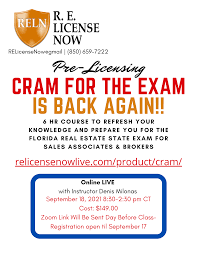
To get a good start, new agents in real estate need to be given some useful tips. They should be able to focus their efforts on the right things and make the most of events like networking, print advertising, social media and door knocking. They need to also develop a strong client base that is ready to purchase and sell.
Tip 1 - Define your goals
You need to first decide what you plan to do with your house. Is your home going to serve as a primary residence? A rental property? Or an investment property for you and your family? You can then choose a real-estate agent that is familiar with the area in which you wish to buy or sell.
The second step is to set a budget. This is a crucial part of the process because you will be able to figure out how much you can afford to spend on a property. Be prepared for any unanticipated costs during the purchase process. This includes the downpayment and closing costs.

Third, you should be aware of current market conditions and trends. This will allow you to determine which properties are good investments and which are not.
The fourth thing you should do is to research the local economy. This will enable you to assess whether the house is a worthwhile investment for your family.
Fifth, it is important to understand all the legal aspects involved in real estate. It's important to understand how to create the necessary paperwork, and what types of contracts you need when you are negotiating transactions with buyers or sellers.
You must also consider the emotional impact your clients may feel from the real-estate market. This could affect their purchase decisions, which in turn can impact your income.

Real estate is a great career if you want to help people. It's rewarding to assist people in finding their dream homes or helping them sell the ones they have.
It is important to remain motivated and maintain your head high, regardless of what the market does. You will be able to stay on track and happy in your work if you do this. It will keep you focused on your goals and help you attract the right customers for your business.
FAQ
What should I do if I want to use a mortgage broker
If you are looking for a competitive rate, consider using a mortgage broker. A broker works with multiple lenders to negotiate your behalf. However, some brokers take a commission from the lenders. Before you sign up for a broker, make sure to check all fees.
How can I find out if my house sells for a fair price?
If your asking price is too low, it may be because you aren't pricing your home correctly. You may not get enough interest in the home if your asking price is lower than the market value. You can use our free Home Value Report to learn more about the current market conditions.
How long does it take to get a mortgage approved?
It depends on several factors including credit score, income and type of loan. Generally speaking, it takes around 30 days to get a mortgage approved.
Do I require flood insurance?
Flood Insurance protects against damage caused by flooding. Flood insurance can protect your belongings as well as your mortgage payments. Find out more information on flood insurance.
How do I calculate my interest rate?
Market conditions affect the rate of interest. The average interest rate for the past week was 4.39%. The interest rate is calculated by multiplying the amount of time you are financing with the interest rate. If you finance $200,000 for 20 years at 5% annually, your interest rate would be 0.05 x 20 1.1%. This equals ten basis point.
Statistics
- Private mortgage insurance may be required for conventional loans when the borrower puts less than 20% down.4 FHA loans are mortgage loans issued by private lenders and backed by the federal government. (investopedia.com)
- 10 years ago, homeownership was nearly 70%. (fortunebuilders.com)
- When it came to buying a home in 2015, experts predicted that mortgage rates would surpass five percent, yet interest rates remained below four percent. (fortunebuilders.com)
- Over the past year, mortgage rates have hovered between 3.9 and 4.5 percent—a less significant increase. (fortunebuilders.com)
- The FHA sets its desirable debt-to-income ratio at 43%. (fortunebuilders.com)
External Links
How To
How to manage a rental property
Although renting your home is a great way of making extra money, there are many things you should consider before you make a decision. We will show you how to manage a rental home, and what you should consider before you rent it.
If you're considering renting out your home, here's everything you need to know to start.
-
What do I need to consider first? You need to assess your finances before renting out your home. If you have outstanding debts like credit card bills or mortgage payment, you may find it difficult to pay someone else to stay in your home while that you're gone. Also, you should review your budget to see if there is enough money to pay your monthly expenses (rent and utilities, insurance, etc. It might not be worth the effort.
-
How much does it cost for me to rent my house? The cost of renting your home depends on many factors. These include things like location, size, features, condition, and even the season. Prices vary depending on where you live so it's important that you don't expect the same rates everywhere. Rightmove has found that the average rent price for a London one-bedroom apartment is PS1,400 per mo. If you were to rent your entire house, this would mean that you would earn approximately PS2,800 per year. This is a good amount, but you might make significantly less if you let only a portion of your home.
-
Is it worthwhile? Although there are always risks involved in doing something new, if you can make extra money, why not? Before you sign anything, though, make sure you understand exactly what you're getting yourself into. Not only will you be spending more time away than your family, but you will also have to maintain the property, pay for repairs and keep it clean. Before you sign up, make sure to thoroughly consider all of these points.
-
Is there any benefit? Now that you have an idea of the cost to rent your home, and are confident it is worth it, it is time to consider the benefits. There are plenty of reasons to rent out your home: you could use the money to pay off debt, invest in a holiday, save for a rainy day, or simply enjoy having a break from your everyday life. No matter what your choice, renting is likely to be more rewarding than working every single day. Renting could be a full-time career if you plan properly.
-
How do I find tenants? Once you decide that you want to rent out your property, it is important to properly market it. Online listing sites such as Rightmove, Zoopla, and Zoopla are good options. Once potential tenants reach out to you, schedule an interview. This will help you assess their suitability and ensure they're financially stable enough to move into your home.
-
How can I make sure that I'm protected? If you don't want to leave your home empty, make sure that you have insurance against fire, theft and damage. You will need insurance for your home. This can be done through your landlord directly or with an agent. Your landlord will typically require you to add them in as additional insured. This covers damages to your property that occur while you aren't there. If your landlord is not registered with UK insurers, or you are living abroad, this policy doesn't apply. In such cases, you will need to register for an international insurance company.
-
It's easy to feel that you don't have the time or money to look for tenants. This is especially true if you work from home. However, it is important that you advertise your property in the best way possible. A professional-looking website is essential. You can also post ads online in local newspapers or magazines. Additionally, you'll need to fill out an application and provide references. Some people prefer to do the job themselves. Others prefer to hire agents that can help. Interviews will require you to be prepared for any questions.
-
What should I do after I have found my tenant? If you have a contract in place, you must inform your tenant of any changes. You may also negotiate terms such as length of stay and deposit. While you might get paid when the tenancy is over, utilities are still a cost that must be paid.
-
How do I collect my rent? When it comes to collecting the rent, you will need to confirm that the tenant has made their payments. If your tenant has not paid, you will need to remind them. After sending them a final statement, you can deduct any outstanding rent payments. If you're struggling to get hold of your tenant, you can always call the police. They will not usually evict someone unless they have a breached the contract. But, they can issue a warrant if necessary.
-
What are the best ways to avoid problems? It can be very lucrative to rent out your home, but it is important to protect yourself. Consider installing security cameras and smoke alarms. Also, make sure you check with your neighbors to see if they allow you to leave your home unlocked at night. You also need adequate insurance. You should not allow strangers to enter your home, even if they claim they are moving in next door.